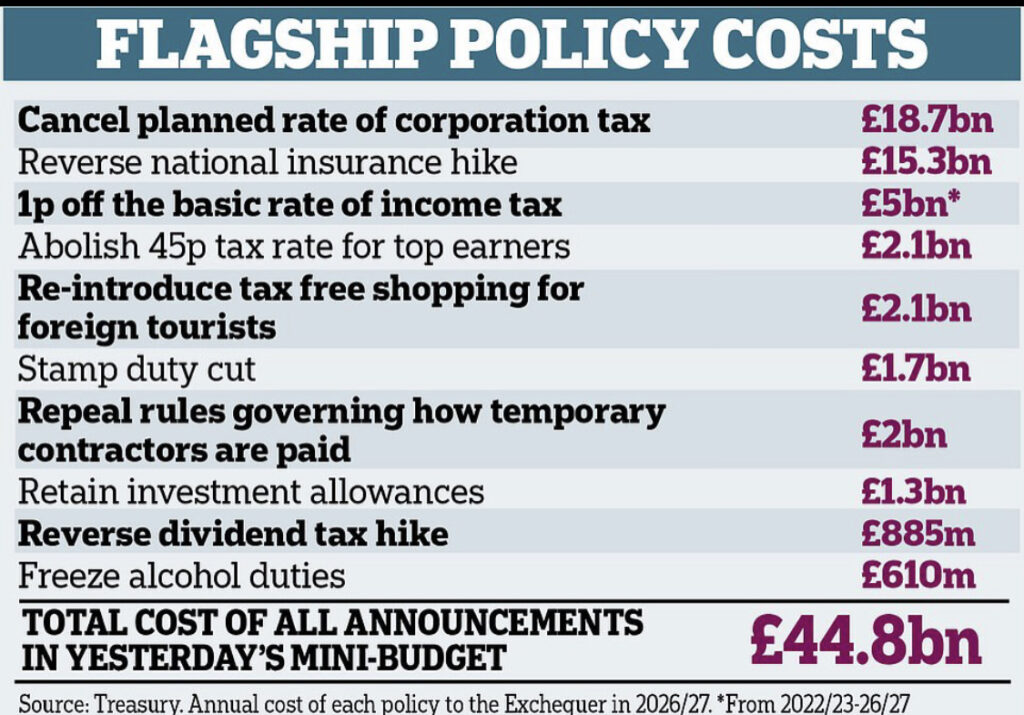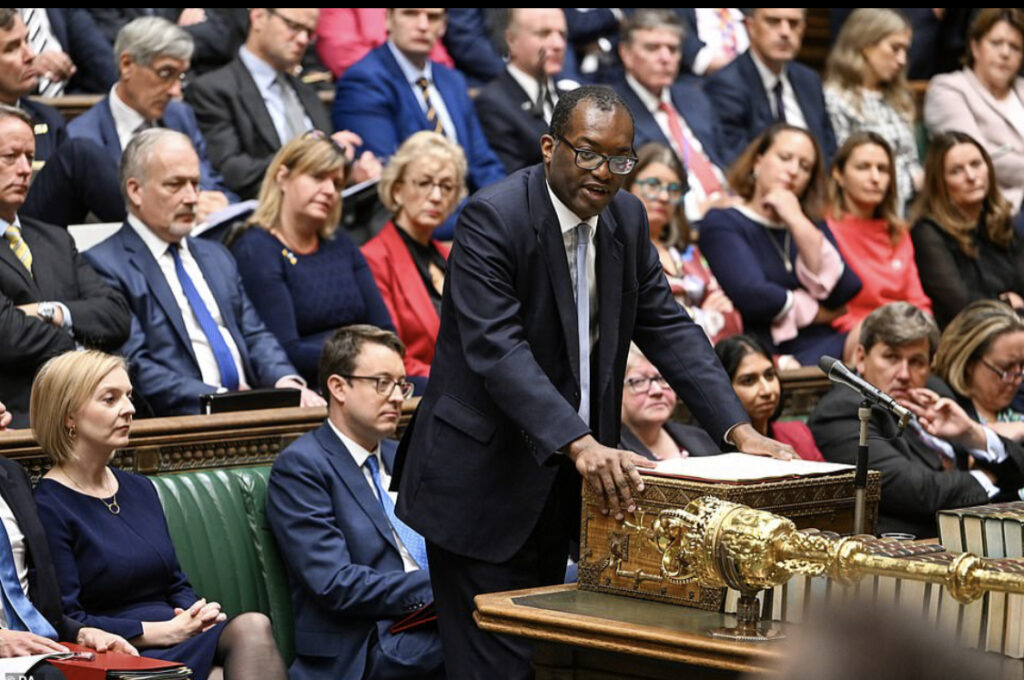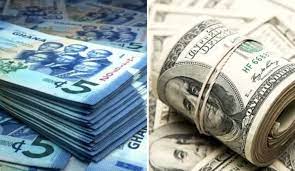Senior Conservatives tonight hailed Kwasi Kwarteng’s dash for growth which saw him unveil a £45billion package of tax cuts – the biggest for half a century.
Unveiling a package that stunned MPs and financial markets, the new Chancellor insisted his measures were ‘fair’ as he slashed income tax and stamp duty, as well as pressing ahead with cuts to national insurance and corporation tax.
Though he admitted the UK might have fallen into recession, following Bank of England estimates of two quarters of negative growth, he backed his action to ‘drive growth’.
‘I don’t think it’s a bleak picture – if you look at unemployment, that’s at a 50-year low,’ he said, adding that tax cuts were ‘central to solving the riddle of growth’ as he set a target for boosting GDP after years of ‘stagnation’.
Business chiefs welcomed the measures, with the CBI saying there was ‘no choice but to go for growth’ – while former Tory treasurer Lord Ashcroft said that with the Chancellor’s mini-Budget it ‘seems after 12 years to have a Conservative government’.
Mr Kwarteng confirmed plans to reverse the increase in national insurance and halt a planned rise in corporation tax. But he also brought forward a planned 1p cut in income tax, taking the basic rate to 19 per cent from next April. This will benefit around 31million workers.
In a surprise move, he also scrapped the 45p top rate of tax, handing an average £10,000 tax cut to the top 660,000 earners. And he doubled the threshold at which stamp duty kicks in to £250,000, making a third of homes in England exempt from the tax altogether.

But financial analysts said it was a huge gamble that could fuel inflation and drive up interest rates to levels not seen in 20 years. And financial markets took fright, with sterling sliding to its lowest level against the dollar since 1985. Last night £1 was worth just $1.09, down 3 per cent in a day. The price of government borrowing soared even higher, sparking fears of a further rise in interest rates.
But Mr Kwarteng rejected the criticism last night, saying: ‘I don’t think it’s a gamble at all. What was a gamble, in my view, was sticking to the course we were on – we had taxes at a 70-year high. What we had to do was have a reboot.’
The Growth Plan came as:
- Mr Kwarteng revealed that freezing energy bills for millions of households and firms will cost the Treasury £10billion a month;
- He abandoned a planned rise in duty on beer, wine and spirits;
- The cap on bankers’ bonuses introduced in the wake of the financial crash was scrapped;
- The Chancellor set a target of raising long-term growth rates to 2.5 per cent a year – against a current forecast of 1.75 per cent;
- Ministers relaxed planning rules for onshore wind farms under deregulation that may cover childcare, immigration and farming;
- Mr Kwarteng unveiled plans to create dozens of low-tax, low-regulation ‘investment zones’;
- Allies of former chancellor Rishi Sunak said it was wrong to offer tax cuts to the rich during a cost of living crisis;
- Treasury chief secretary Chris Philp faced mockery after he welcomed a brief spike in the value of the pound just before it crashed;
- Mr Kwarteng pledged new union laws to curb ‘unacceptable’ strikes affecting key services;
- Tax-free shopping for overseas visitors was reintroduced in a bid to boost tourism;
- Labour likened the PM and Chancellor to ‘two desperate gamblers, chasing a losing run’.

The Chancellor told MPs it was time to ‘turn this vicious cycle of stagnation into a virtuous cycle of growth’, adding: ‘We need a new approach for a new era, focused on growth.’
But some economists warned that the massive package of unfunded tax cuts could fuel already sky-high inflation.
Paul Johnson, director of the Institute for Fiscal Studies, said: ‘Mr Kwarteng has shown himself willing to gamble with fiscal sustainability in order to push through these huge tax cuts. He is willing to shrug off the risks of inflation, and to invite significantly higher interest rates. He is not just gambling on a new strategy, he is betting the house.’
The respected IFS think-tank had suggested it could be the biggest tax move since Nigel Lawson’s 1988 Budget, when Ms Truss’s heroine Margaret Thatcher was PM.
But director Paul Johnson said afterwards that in fact it was the largest since 1972 – when Ted Heath was trying to create an election boom – and ‘quite extraordinary’.
‘It was like having an entirely new Government,’ he said. ‘This was the biggest tax-cutting event since 1972, it is not very mini. It is half a century since we have seen tax cuts announced on this scale.’
Mr Johnson said the tax cuts would benefit high earners more, and had been pushed through ‘without even a semblance of an effort to make the public finance numbers add up’.
‘Instead, the plan seems to be to borrow large sums at increasingly expensive rates, put government debt on an unsustainable rising path, and hope that we get better growth.


















































